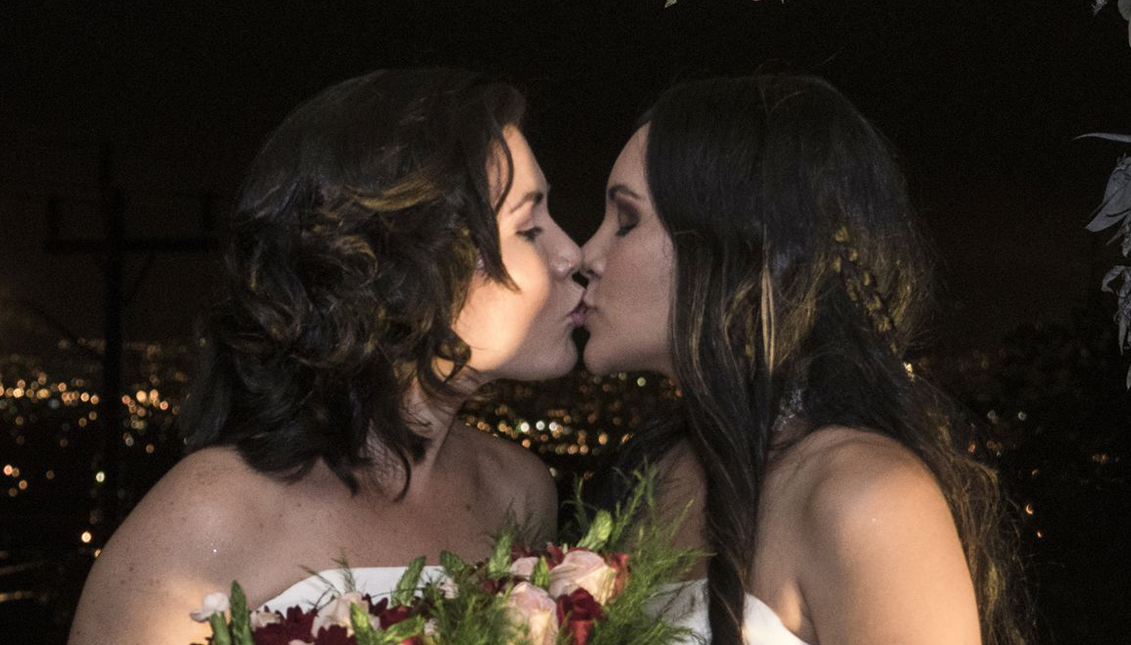
The midnight that Costa Rica stepped forward in LGBTQ rights
The COVID-19 pandemic did not stop Costa Rica, which became the first Central American country to allow gay couples to marry.
Only royal weddings have had so many spectators. At 00:01 hours on Tuesday, Dunia Araya and Alexandra Quiros, both dressed in white and with a surgical masks covering their faces, were saying yes to each other in a town northwest of San Jose, Costa Rica. It was a historic moment, a date that neither they nor any Costa Rican will ever forget and which is proof that even in the worst of scenarios justice can be served.
Dunia and Alexandra are the first same-sex couple to legally marry in Costa Rica. They did so during a special program on LGBTQ rights on public television and the Internet, after a court ruling legalizing gay marriage went into effect at midnight.
"This change will bring about a significant social and cultural transformation, allowing thousands of people to get married," said President Carlos Alvarado on public television.
By doing so, Costa Rica becomes the first Central American country to recognize same-sex marriages and the eighth in the Americas, including nations such as Brazil, Ecuador, Colombia, Uruguay and Argentina.
The struggle for full rights and for LGBTQ people to stop being seen as second and third class citizens and to have their rightful place has not been easy, said activist and lawyer Marco Castillo. After decades of demands, in August 2018, Costa Rica's Supreme Court ruled that the ban on gay marriage was unconstitutional and gave Parliament 18 months to deliver justice. But it did not, the provision was overturned.
The country's strong Catholic tradition and the proliferation of evangelical churches in recent years explain this and other obstacles to equal rights for homosexuals in the country. However, when Alvarado came to power in April 2018, he stood up to the "Other" Alvarado, almost his nemesis, the evangelical preacher Fabricio Alvarado, who had campaigned hard against gay marriage.
The Supreme Court's decision complied with the opinion of the Inter-American Court of Human Rights, requested in 2016, declaring that homosexual couples have the same right to marry as heterosexuals.
RELATED CONTENT
"Our duty is to combat all types of discrimination, whether based on disability, ethnicity, culture, religious belief, sex, gender identity and expression, sexual orientation or any other," the president added in a statement Monday. He also acknowledged that there are sectors that are unhappy with this decision.
Now Costa Rica is preparing for a flurry of weddings whose celebrations will have to be postponed until after the pandemic, but which fill activist groups and the LGBTQ community with excitement after very dark decades.
"Costa Rica is celebrating today: equality in marriage has become a reality in the country, the first in Central America," published the International Lesbian, Gay, Bisexual, Trans and Intersex Association (ILGA). "We rejoice with you: congratulations to all who worked so hard to make this happen!
UN expert on sexual orientation and gender identity, Victor Madrigal-Borloz also applauded the milestone in a tweet published on Monday, saying it was "an extraordinary moment of celebration.
Legislation on LGBTQ rights differs in most Latin American countries. While Bolivia, Cuba, Dominican Republic, El Salvador, Guatemala, Honduras, Nicaragua, Panama, Paraguay and Peru do not recognize marriage between two people of the same sex, Chile and Ecuador speak of "civil union" but not "marriage". In Mexico, only some of its 32 states allow it.











LEAVE A COMMENT: